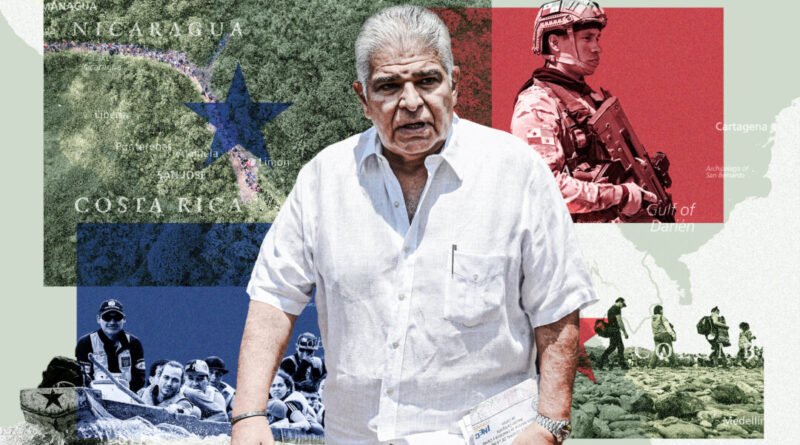The Potential Impact of Panama’s New President on reducing Mass Migration to the US
In a surprising turn of events that could impact the Biden administration, José Mulino was elected president of Panama on May 5 with a campaign promise to close the Darién Gap to migrants heading to the U.S. southern border.
Mr. Mulino emphasized, “When repatriation starts, potential arrivals will think twice as they won’t have an easy destination and will be sent back to their home countries. We are not endorsing migration here, and we will stop it by making a firm decision.”
Todd Bensman from the Center for Immigration Studies pointed out that Mulino’s promise to close the Darién Gap may challenge President Biden’s stance on immigration by reversing the Trump-era policies favoring open borders.
Secretary of State Antony Blinken congratulated Mulino on his victory and highlighted shared goals of controlling migration and promoting democratic governance and economic prosperity.
During his campaign, Mr. Mulino joked about seeking help from former President Donald Trump for building a wall in the Darién Gap in case Trump returned to office.
The Cinderella Candidate
In a four-way race, Mulino secured nearly 35% of the votes, giving him a significant lead over his opponents and making him the president-elect for a five-year term starting on July 1.
His victory marked a shift from the previous administration, led by President Laurentino Cortizo, who was term-limited from serving another consecutive term. Mulino replaced former President Ricardo Martinelli late in the race due to legal constraints.

Jose Raul Mulino and President Laurentino Cortizo wave to the media after their first official meeting at the Presidential Palace in Panama City on May 7, 2024. (Martin Bernetti/AFP via Getty Images)
During his time as security minister in the Martinelli administration, Mulino successfully reclaimed a section of the Darién Gap previously controlled by narco-guerrillas from Colombia.
The new president faces various challenges, including managing the economy, dealing with a drought affecting the Panama Canal, and addressing the closure of a copper mine for environmental reasons. His power as president allows him to potentially control the flow of migrants through the Darién Gap.
Experts suggest that this move could be pivotal in curbing illegal migration and saving lives, similar to the effect of certain policies implemented during the early days of the Trump administration in deterring illegal immigration.
While shutting down the Darién Gap may pose challenges due to existing infrastructure and U.S. funding to NGOs, Mulino’s firm stance could serve as a game-changer in addressing the illegal immigration crisis.

A migrant suffering from sore feet after crossing the Darien Gap in Panama.
Moreover, Mulino faces potential opposition from organizations advocating for migrants on their journey, but his unwavering commitment to control illegal migration aligns with the sentiments of many Panamanians and mirrors concerns in the United States regarding border security and immigration policies.

Texas National Guard look on as illegal immigrants board a bus after surrendering to Border Patrol agents on the U.S.–Mexico border in El Paso, Texas.
Mr. Mulino’s presidency is poised to reshape the dynamics of migration in the region and could set a precedent for addressing similar challenges globally.




